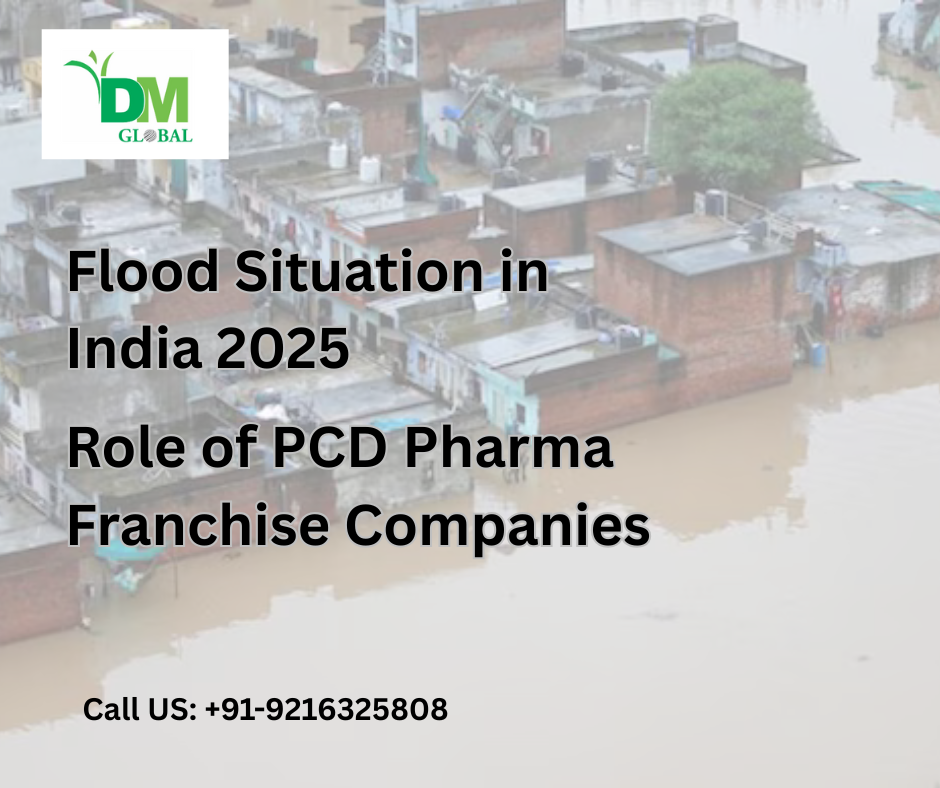India is grappling with widespread flooding in several regions as of early September 2025:
-
Gujarat (Banaskantha, Kutch): Intense rainfall over just 36 hours has displaced over 500 people and isolated 13 villages in Banaskantha — notably in Suigam, Vav, Tharad, and Bhabhar. Key infrastructure, including 258 electricity poles, has been damaged, and widespread power outages have hit 279 villages. Kutch district also faces severe waterlogging and road disruptions; villages such as Rapar and Dayapar are submerged, and highways are partially blocked .
-
Odisha (Kendrapada): A fourth wave of flooding has inundated 28 gram panchayats in Pattamundai and Aul blocks, affecting around 80,000 residents due to the swollen Brahmani river. Relief operations are underway, although rescue efforts remain challenging .
-
Uttar Pradesh (Bijnor): A 200-meter stretch of embankment near Ravali and the Ganga Barrage eroded, putting over 40 villages — including Navalpura and Ghasiwala — at risk .
-
Punjab, Himachal & J&K: Since August 26, the Indian Army has carried out 82 relief missions and evacuated over 6,000 individuals while delivering emergency medical aid to more than 13,000 people . Notably, in Punjab alone, the August flooding affected 1,400 villages across 13 districts, inundating over 2.5 lakh acres of farmland and impacting 3.54 million people .
Urgent Medical Needs During Floods
Around flood zones, key medical needs include:
-
Emergency healthcare & camps: Medical teams — including those from AIIMS Delhi (22-member team) — have been deployed across flood-hit regions of northern India to provide essential care, distribute medicines, and attend to critical conditions .
-
Mobile medical units & rapid response teams: In Punjab, health authorities deployed 818 teams (458 rapid response + 360 mobile medical teams) offering preventive and curative services. They’ve held 962 camps and treated nearly 31,876 patients — managing conditions like gastroenteritis, hypertension, skin ailments, and facilitating antenatal checkups .
-
Local medical camps: In Patiala, mobile health units and medicine-stocked camps are reaching remote villages around the clock . In Mohali, emergency camps are supplying ORS, chlorine tablets, and preventing water-borne infections .
-
Infrastructure loss: Punjab’s healthcare infrastructure suffered massive losses — ₹780 crore in damages, including destroyed health centers and medicines worth ₹130 crore .
How PCD Pharma Franchisees Can Help
Pharma Franchisees (especially monopoly pharma companies) can play a vital role in alleviating the crisis.
1. Rapid Supply of Essential Medicines
Franchise distributors can ensure timely deliveries of antibiotics, ORS, analgesics, antiseptics, and other critical medicines to camps and mobile units when standard supply chains are disrupted.
2. Robust Stock and Logistics Support
With portfolios that include monopoly rights for specific regions, PCD Pharma Franchise India networks ensure seamless medicine availability — a unique strength amid fragmented systems.
3. Coordinated Relief Outreach
Franchisees can partner with NGOs and government teams to run medical kiosks, medicine camps, or free relief drives in flooded districts, ensuring equitable distribution.
4. Public Health Awareness & Precaution Packs
They can distribute hygiene kits, preventive medicine kits (e.g. ORS, anti-diarrheal agents, antiseptics), and educate communities via campaigns — helping prevent disease outbreaks.
5. Strengthening Local Health Infrastructure
Many PCD franchise companies also provide contract manufacturing services. As a premier pharma contract manufacturing company, they can expedite production of essential therapeutic lines and deliver dedicated products to flood-hit zones.
Why Their Role Matters
-
Monopoly pharma setups enable single-point accountability and faster product availability — no multiple approvals or middlemen delays.
-
Franchisees have local networks, knowledge of rough terrain, and logistical capability to reach remote or isolated communities swiftly.
-
The combination of contract manufacturing and distribution ensures scalability and agility during emergency response — critical during rapidly escalating disasters.
FAQs
Q1. Which areas in India are most affected by floods in 2025?
Ans: In 2025, major flood-hit regions include Assam, Bihar, Uttar Pradesh, and parts of Himachal Pradesh. These areas face widespread displacement, waterlogging, and increased health concerns like infections, water-borne diseases, and lack of medical supplies.
Q2. Why is medical help so crucial during floods?
Ans: Floods often lead to outbreaks of diseases such as cholera, diarrhea, dengue, and skin infections. Quick access to medicines, healthcare staff, and emergency supplies ensures that the affected population gets timely treatment and prevents larger health crises.
Q3. How can a monopoly medicine company in India support during natural disasters like floods?
Ans: Monopoly medicine companies can provide uninterrupted supply of essential drugs, ensuring that flood-affected regions receive timely medications. Their wide network allows them to deliver critical medicines directly to medical camps and relief centers.
Q4. What role does a pharma contract manufacturing company play in flood relief?
Ans: A pharma contract manufacturing company helps by producing large volumes of essential medicines, IV fluids, and antibiotics quickly, ensuring there is no shortage in disaster-hit regions. Their scalability supports government and NGO relief operations effectively.
Q5. How do PCD Pharma Franchise companies help in flood-affected areas?
Ans: PCD Pharma Franchise companies bridge the gap between manufacturers and local medical providers. They ensure medicines reach rural and semi-urban regions where floods often disrupt healthcare services. Their local presence speeds up the distribution of life-saving drugs.
Q6. Can pharma companies collaborate with NGOs and government bodies during floods?
Ans: Yes, pharma companies frequently collaborate with relief agencies by donating medicines, setting up mobile clinics, and offering logistical support. This collective effort reduces the burden on government healthcare facilities during natural calamities.

